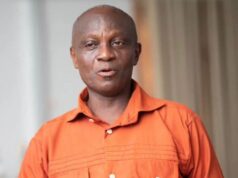Renowned investigative journalist, Manasseh Azure Awuni has argued that the BBC Africa Eye exposé on “sex for grades” cannot be accepted or ought to be rejected because it did not focus on how undeserved grades were offered to sexually harassed female students.
Commenting on the raging issue on social media, the award-winning, reigning West Africa Journalist of the year, observed that the BBC should have focused on the subject of their investigation, which it failed to do.
“Investigative journalism is like academic research. If you have randomly or purposively (as in Prof. Gyampo’s case) sampled a university lecturer who allegedly offers undeserved grades to his sexually harassed students, then you can only use one approach to test your hypothesis: let your engagement focus on the subject of the investigation. Go to the lecturer and tell him you are one of his over one thousand students and you have failed his subject or you are not sure of passing his subject. If he asks for sex in order to give you the grade, you have your story,” he explained.
Mr Azure, therefore, criticized the approach adopted by the investigative team:
“You can easily get a fake student ID card and index number that show you a student taking his course. When you are going to bust a lecturer offering grades in return for sex, you don’t go to him or her as someone seeking mentorship or to seek national service placement without mentioning the subject of grades,” he added.
Using the example of Professor Gyampo of the University of Ghana to further buttress his point, Mr Awuni averred that even though he is not justifying the actions of the Professor, he finds that there was no element of coercion or victimization which is implied in “sex for grades” situations.
“In the case of Prof. Gyampo, as shown in the video, the lecturer made advances at a student who wanted to be mentored. In the process, he told her to be free to accept or reject the proposal. She did not give in. He requested a hug after buying her shoes. She declined. And they parted ways,” he contended.
Meanwhile, the chairperson of the Anti-Sexual Harassment Committee of the University of Ghana has stated that she finds no case of sex for grades in the documentary.
“Per the analysis of the video, there’s no direct correlation between lecturer’s conduct and the allegations made by the video. The evidence does not point to sex for grade. When we talk of sex for grade, we didn’t see much involvement of the lecturers of the University of Ghana,” she revealed to Starr FM.
Source: Mynewsgh.com























